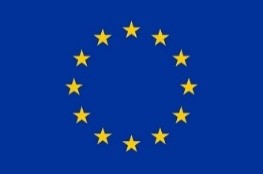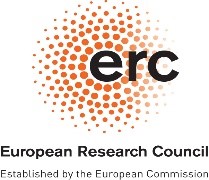Received:
2019-05-15 | Accepted:
2019-06-26 | Published:
2019-09-30
Title
Legal form determination for the development of clusters' activities
Abstract
In this study, the authors have investigated the determination of the most suitable legal form for the development of the cluster management activities. In each particular case the developers of the cluster have to assess the objectives of the cluster, the principal aspects of the mutual partnership, the risks that could be provoked, and in accordance with the derived decisions. The choice of the cluster legal activity form depends on the objectives and on the branch in which the cluster is operating, on the number of the cluster participants, on the type of the activities of the cluster, on the openness or closeness to new members, type of the contributions of the partners and the other factors. The most reliable solution regarding the choice of the model of the functioning and management of the cluster has to be derived as well legal regulation of the legal form of the activity discussed. The advantages and disadvantages of two models of the cluster formation discussed. During experimental evaluation, the significance of criteria was determined and the expert evaluation on legal form for the development of clusters activities was performed. Foundation and management of the clusters are determined firstly by the fact that in one case a new established legal person performs the functions of the cluster coordinator while in another case one of the cluster participants performs the functions and partners legal cooperation determined by Agreement on Partnership. Article analyses the multi-criteria decisions-making to establish the cluster with the certain type of juridical form of legal person or to develop cluster management activities by the Partnership Agreement. The recommendations presented by application of MCDM calculus methods with aspect of percentage.
Keywords
MCDM, clusters, juridical form, TOPSIS, COPRAS, SAW
JEL classifications
K20
URI
http://jssidoi.org/ird/article/18
DOI
HAL
Pages
244-258
Funding
This research was supported by the project,which has received funding from the European Union's Horizon 2020research and innovation programme European Research Council (ERC) under the European Union's Horizon 2020 research and innovation programme Marie Sklodowska-Curie Research and Innovation Staff Exchanges ES H2020-MSCA-RISE-2014 CLUSDEVMED (2015-2019) Grant Agreement Number 645730730
This is an open access issue and all published articles are licensed under a
Creative Commons Attribution 4.0 International License
References
Center of Registers. (2019). Retrieved from Register of Legal Entities: http://www.registrucentras.lt/jar/index_en.php
Search via ReFindit
Civil Code of the Republic of Lithuania. (2000). Retrieved from TAR: https://www.e-tar.lt/portal/en/legalAct/TAR.8A39C83848CB/XmJgbEJJPg
Search via ReFindit
European Commision . (2014, January 24). Retrieved from EUR-Lex: https://eur-lex.europa.eu/legal-content/EN/TXT/HTML/?uri=CELEX:32014R0651&from=LT
Search via ReFindit
Hwang, C., & Yoon, K. . (1981). Multiple attribute decision making Methods and applications. In A state of the art survey:. Springer–Verlag.
Search via ReFindit
Ketels, C., & Protsiv, S. (2016, November). ResearchGate. Retrieved from https://www.researchgate.net/publication/320372319_European_Cluster_Panorama_2016/download
Search via ReFindit
Kurilov, J., & Vinogradova, I. (2016). Improved fuzzy AHP methodology for evaluating quality of distance learning courses. International journal of engineering education, 32(4), 1618-1624.
Search via ReFindit
Kurilovas, E., Vinogradova, I., & Kubilinskiene, S. (2016). New MCEQLS fuzzy AHP methodology for evaluating learning repositories: a tool for technological development of economy. Technological and Economic Development of Economy, 22(1), 142-155. https://doi.org/10.3846/20294913.2015.1074950
Search via ReFindit
Martin, R., & Sunley, P. (2011). Conceptualizing Cluster Evolution: Beyond the Life Cycle Model? Regional Studies 45(10), 1299-1318. https://doi.org/10.1080/00343404.2011.622263
Search via ReFindit
Monteiro, P., De Noronha, T., & Neto, P. (2013). A Differentiation Framework for Maritime Clusters: Comparisons across Europe. Sustainability 5(9), 4076-4105. https://doi.org/10.3390/su5094076
Search via ReFindit
Podvezko, V. (2011). The Comparative Analysis of MCDM Methods SAW and COPRAS. Ekonomika–Engineering Economics, 22, 134–146. https://doi.org/10.1016/j.omega.2015.05.013
Search via ReFindit
Podviezko, A. P. (2014). Absolute and Relative Evaluation of Socio-Economic Objects Based on Multiple Criteria Decision Making Methods. Inzinerine Ekonomika-Engineering Economics , 25, 522–529. https://doi.org/10.5755/j01.ee.25.5.6624
Search via ReFindit
Razminienė, K., Tvaronavičie, M. 2018. Detecting the linkages between clusters and circular economy. Terra Economicus, 16(4):, 0-65 http://doi.org/10.23683/2073-6606-2018-16-4-50-65
Search via ReFindit
Republic of Lithuania Law on Associations. (2004). Retrieved from TAR: https://www.e-tar.lt/portal/en/legalActEditions/TAR.FF00B0EA2F0E
Search via ReFindit
Republic of Lithuania Law on Companies. (2014). Retrieved from TAR: https://www.e-tar.lt/portal/en/legalAct/TAR.E22116F1B0E0
Search via ReFindit
Republic of Lithuania Law on Public Establishments. (2017). Retrieved from TAR: https://www.e-tar.lt/portal/en/legalAct/TAR.1E52802BE548/vJANcvICnP
Search via ReFindit
Saaty, T. L. (1980). The Analytic Hierarchy Process. New York: McGraw-Hill.
Search via ReFindit
Trinkūnienė, E., Podvezko, V., Zavadskas, E., Jokšienė, I., Vinogradova, I., & Trinkūnas, V. (2017). Evaluation of quality assurance in contractor contracts by multi-attribute decision-making methods. Economic research = Ekonomska istraživanja, 30(1), 1152-1180. https://doi.org/10.1080/1331677X.2017.1325616
Search via ReFindit
Turskis, Z., Keršulienė, V., & Vinogradova, I. (2017). A new fuzzy hybrid multi-criteria decision-making approach to solve personnel assessment problems. Case study: director selection for estates and economy office. Economic computation and economic cybernetics studies and research., 51(3), 211-229.
Search via ReFindit
Vinogradova, I., & Kliukas, R. (2015). Methodology for evaluating the quality of distance learning courses in consecutive stages. Procedia - Social and Behavioral Sciences. The proceedings of 6th World Conference on educational Sciences. 191, pp. 1583-1589. Amsterdam: Elsevier Science Ltd. https://doi.org/10.1016/j.sbspro.2015.04.364
Search via ReFindit
Vinogradova, I., Podvezko, V. & Zavadskas, E., 2018. The Recalculation of the Weights of Criteria in MCDM Methods Using the Bayes Approach. Symmetry, 10(6), p.205. http://dx.doi.org/10.3390/sym10060205
Search via ReFindit
Yang, J., Černevičiūtė, J. 2017. Cultural and Creative industries (CCI) and sustainable development: China's cultural industries clusters. Entrepreneurship and Sustainability Issues, 5(2), 231-242. http://doi.org/10.9770/jesi.2017.5.2(6)
Search via ReFindit
Zavadskas, E. K. (2007). Multi-attribute assessment of road design solutions by using the COPRAS method. The Baltic Journal of Road and Bridge Engineering, 2(4), 195–203.
Search via ReFindit
Žižka, M., Hovorková, V., Pelloneová, N., Štichhauerová, E. 2018. The effect of clusters on the innovation performance of enterprises: traditional vs new industries. Entrepreneurship and Sustainability Issues, 5(4), 780-794. http://doi.org/10.9770/jesi.2018.5.4(6)
Search via ReFindit












 RSS 1.0
RSS 1.0